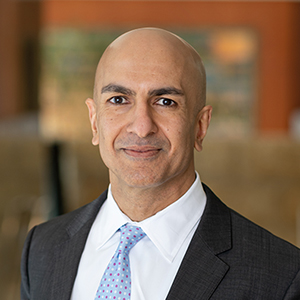We recently announced to our 1,100 colleagues at the Federal Reserve Bank of Minneapolis that we are instituting a new policy requiring all employees to be fully vaccinated against COVID-19 by the end of August as a condition of continuing employment, with accommodations only provided to those who cannot get vaccinated due to medical conditions or sincerely held religious beliefs. Future hires will be subject to this policy. The Minneapolis Fed is a visible institution in our region and we know many employers have not yet made a decision about their own COVID-19 vaccine policy, so we thought it worthwhile to explain why this policy makes sense for our institution.
The Minneapolis Fed is part of our nation’s central bank and is critical infrastructure that supports the basic functioning of the U.S. economy. We enable payments among individuals, firms, and financial institutions. We supervise banks across our region and provide them cash to meet their customers’ needs. We conduct research and analyze regional, national, and global economic trends in order to help set monetary policy for the United States. We actively engage with members of the public so we can hear directly about what’s happening in their communities and share what we are learning.
When the pandemic hit in March 2020, we were able to quickly move more than 90 percent of our staff to remote work in order to keep them safe and prevent a COVID-19 outbreak from disrupting our operations. Despite this major, unexpected shift in how we work, we were pleasantly surprised that we were able to meet our basic operating requirements during the past 16 months.
But we also know that we are losing something by being almost fully remote. Our work requires close collaboration among staff. It requires brainstorming to identify and overcome challenges. It requires debate among colleagues, which is built on trust that takes time to develop and must be nurtured. Simply put, while we will enjoy more flexibility in where we work going forward, we are not going to be a fully remote institution. In order to fulfill our public-service mission, we need more face-to-face contact than remote work allows, but there is no way for us to bring a critical mass of our staff back into our facilities and maintain social distancing. Hence, we need our employees to be vaccinated.
Since the COVID-19 vaccines were first introduced, we strongly encouraged all of our colleagues to get vaccinated. More than 82 percent of them are now fully vaccinated, including all of our senior leadership team. We are grateful that so many of our colleagues have already taken this small but important step to protect themselves and each other. Most of the remaining 18 percent have not told us their vaccination plans, and a small percentage have indicated they do not plan to get vaccinated.
Even with our current high level of vaccinations, bringing everyone back into the office could put our staff at unnecessary risk. First, unvaccinated employees could infect other unvaccinated employees while at work; outbreaks continue to happen worldwide, largely among those who are unvaccinated. Second, some employees cannot be vaccinated due to health conditions. Those who can receive a vaccine but choose not to put these employees at unnecessary risk. Finally, some vaccinated staff have expressed concern about getting infected by an unvaccinated colleague and then passing it on to a family member who cannot be vaccinated. While there remains a lot that experts don’t know about COVID-19, the science is clear that everyone’s safety is enhanced the closer we can get our vaccination rate to 100 percent.
Now that free vaccines are widely available, there are virtually no barriers to individuals being vaccinated. And, we have given employees ample time to be fully vaccinated before we return to the office.
It is also clear that employers may legally impose such a policy. The Equal Employment Opportunity Commission has confirmed that the law allows an employer to require all employees entering the workplace to be vaccinated against COVID-19 in order to protect against the threat it poses to health and safety.
We recognize that if our vaccination rate were lower, say 50 percent, this would be a more difficult decision. But with so many of our employees voluntarily doing their part to keep us safe, asking our remaining colleagues to also do their part just makes sense. While some staff may be unhappy with this new requirement, we believe most will appreciate the actions we are taking on our collective behalf. We hope our remaining staff get vaccinated so we can all get back to our important mission of serving the public.






